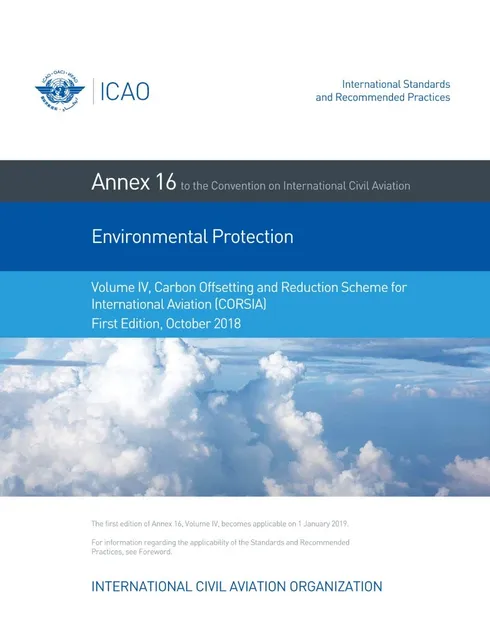For the first time, sustainable aviation fuels (SAF) have been certified under the Carbon Offsetting and Reduction Scheme for International Aviation (CORSIA). Making use of the two ICAO-approved Sustainability Certification Schemes designed for this purpose, the development marks a significant milestone for both SAF production and aviation climate action by States.

The nine batches, totalling 1,542 tonnes, were certified by ISCC and RSB and produced in China, the Netherlands, and the United States, by ECOCHEM, Neste, and WorldEnergy, respectively. They were produced from wastes and are characterized by 75% to 84% lower CO2 emissions compared to conventional aviation fuels.
“The successful certification of these sustainable aviation fuels ensures that they present real environmental benefits on a life cycle basis, and it also confirms the performance of the certification process itself,” expressed ICAO Council President Salvatore Sciacchitano. “This milestone shows that CORSIA global framework for sustainability assessment is robust and ready to support the achievement of ICAO’s goals on climate change.”
CORSIA allows aircraft operators to reduce their offsetting requirements through the use of CORSIA-eligible fuels, which include CORSIA sustainable aviation fuels and CORSIA lower carbon aviation fuels.
The process is based on the application of the Standards set forth in the Convention on International Civil Aviation’s Annex 16 – Environmental Protection, Volume IV. These standards encompass aspects related to sustainability, monitoring, reporting and accounting of SAF.
Sustainable aviation fuels (SAF) are defined as renewable or waste-derived aviation fuels that meet sustainability criteria1. Technical analysis done at ICAO shows that SAF has the greatest potential to reduce CO2 emissions from International Aviation.
ICAO is working to facilitate SAF development and deployment through four main streams:
1) Globally-accepted environmental Standards for SAF
CORSIA includes methodologies that allow aircraft operators to reduce its offsetting requirements through the use of SAF and Lower Carbon Aviation Fuels (LCAF). These include globally-accepted sustainability criteria and life cycle methodologies. Specific details on how SAF is considered under CORSIA are provided in the ICAO Environmental Report 2019, Chapter 6 – An Overview of CORSIA Eligible Fuels (CEF). Related documents are provided in the CORSIA eligible fuels website.
2) SAF policies and goals
The ICAO Assistance, Capacity-building and Training for Sustainable Aviation Fuels (ICAO ACT-SAF) Programme was launched on 1st June 2022. It will provide opportunities for States to develop their full potential in SAF development and deployment, in line with the ICAO’s No Country Left Behind initiative, the 2050 ICAO Vision for SAF, and the three main pillars of sustainable development recognized by the United Nations.
- ICAO STOCKTAKING PROCESS: ICAO is periodically reviewing the progress on SAF development and deployment through a Stocktaking Process, including the organization of regular seminars. Information gathered on the Stocktaking is included in the “SAF tracking tools” being maintained as part of the ICAO Global Framework for Aviation and Alternative Fuels (GFAAF).
-
AF Guide (2018): As part of the ICAO-UNDP-GEF assistance project “Transforming the Global Aviation Sector: Emissions Reductions from International Aviation”, a “Sustainable Aviation Fuels Guide” was developed to inform ICAO Member States on how sustainable aviation fuels can be deployed to reduce CO2 emissions from international aviation activities. The guide describes fuel production pathways, usage constraints, environmental and other benefits, and policy perspectives on the use and development of SAF.
- ICAO GFAAF: The ICAO Global Framework for Aviation and Alternative Fuels (GFAAF) is the online database for sharing information related to sustainable aviation fuels. It contains links to hundreds news articles dating back to 2005, details of past and ongoing initiatives, facts and figures, answers to frequently asked questions, and links to additional resources. It also includes a live feed of flights using sustainable aviation fuels.
